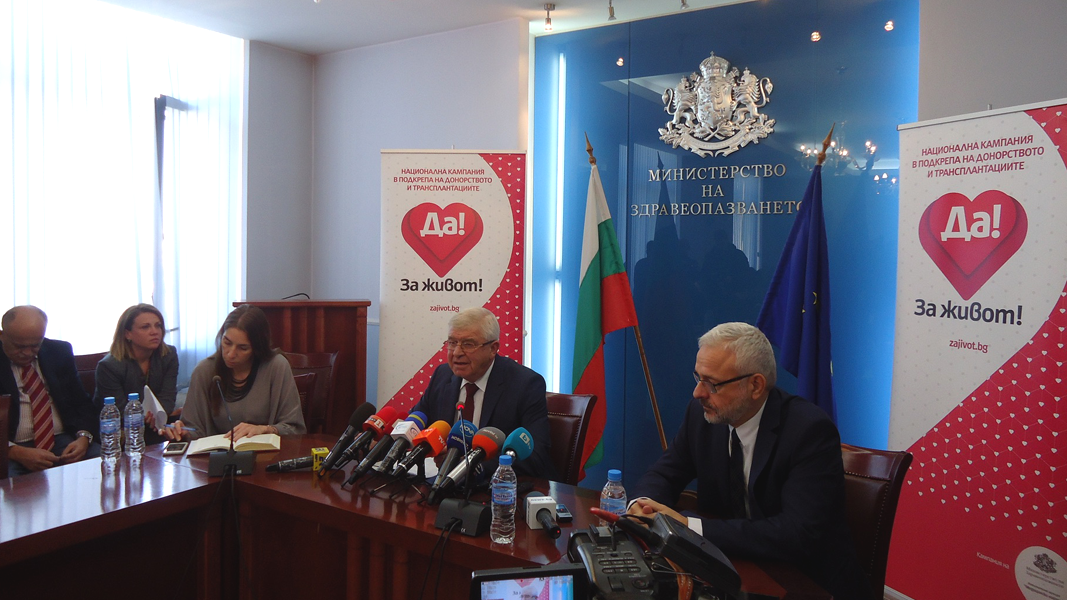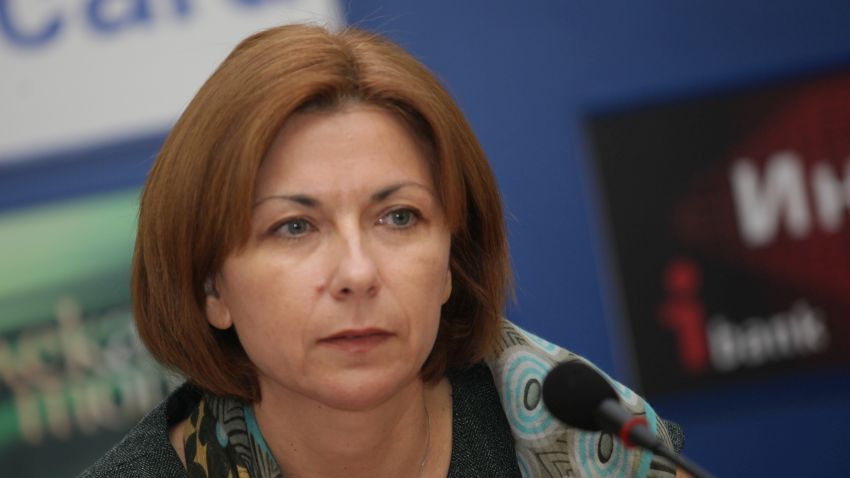Fewer Bulgarians tend to donate their organs or those of their beloved ones who are in brain death. This is the reason why the Ministry of Healthcare has launched an information campaign to cast light on the life-saving role of transplants.
During the one-month campaign “Yes! For Life” special cards will be issued in 27 regional cities in which anyone can express their consent for organ donation. These cards do not have official legal value, but they can serve as a strong signal to relatives of a person in brain death, as the decision whether to donate organs lies in their hands. Most often, the motives of people who agree to donate are moral duty and the desire to give another person a chance to live.
 “Currently, 1,151 patients need a transplant. A thousand of them expect to receive a kidney,” Healthcare Minister Kiril Ananiev said. “Since the beginning of the year, there have been 32 transplants from posthumous denotation. Unfortunately, the low number of donors in this country does not allow it to become a full member of Eurotransplant – the organization through which in an emergency we could receive organs or send Bulgarian citizens for transplantations abroad. That is why with this campaign we want to reach out to everyone and make them think about the role and benefits of organ donation and transplantation.”
“Currently, 1,151 patients need a transplant. A thousand of them expect to receive a kidney,” Healthcare Minister Kiril Ananiev said. “Since the beginning of the year, there have been 32 transplants from posthumous denotation. Unfortunately, the low number of donors in this country does not allow it to become a full member of Eurotransplant – the organization through which in an emergency we could receive organs or send Bulgarian citizens for transplantations abroad. That is why with this campaign we want to reach out to everyone and make them think about the role and benefits of organ donation and transplantation.”

About 35 per cent of Bulgarians agree to become donors and 32 per cent to donate organs of their relatives, a poll by Alpha Research shows. At the same time, 74% would benefit from organ transplants if needed. Compared to the residents of the European Union, Bulgarian citizens are less likely to agree to donate organs.
 “People's fears are that if they carried their donor card and suffered an incident, doctors might not invest enough efforts to save their life,” says sociologist Boryana Dimitrova. “This fear, expressed by 57 percent of the polled, can only be dispersed by medical professionals and their compliance with medical standards. But this is a huge barrier – not so much the negative attitude towards donation in general, but the specific fear that the necessary care might not be provided. People also worry whether there are guarantees that their organs would be used for patients in need and not for organ trafficking.”
“People's fears are that if they carried their donor card and suffered an incident, doctors might not invest enough efforts to save their life,” says sociologist Boryana Dimitrova. “This fear, expressed by 57 percent of the polled, can only be dispersed by medical professionals and their compliance with medical standards. But this is a huge barrier – not so much the negative attitude towards donation in general, but the specific fear that the necessary care might not be provided. People also worry whether there are guarantees that their organs would be used for patients in need and not for organ trafficking.”
Superstitions and irrational fears that guide the behavior of Bulgarians in relation to various social causes, also discourage many people from agreeing to donate, the sociologist says.
“In Bulgarian society, the rational attitude towards medicine coexists with irrational attitude towards the human body and human life,” she adds. “Secondly, according to our research, people fear they could provoke fate by declaring they would agree to donate organs. There are many people who just don't want to think about such topics.”
Poor awareness and insufficient willingness to speak about the topic of organ donation with family and friends is one of the main reasons Bulgarians have increasingly reserved attitude towards organ donation, the polling agency found. European experience shows that such conversations greatly increase people's willingness to consent to donation. In Bulgaria this could happen "through higher awareness, overcoming barriers and fears and through motivation for solidarity," Boryana Dimitrova says.
English: Alexander Markov
Novo Oryahovo is a village in north-eastern Bulgaria. It is located in a picturesque corner in the municipality of Dolni Chiflik - 2 km from the Black Sea and the nature reserve along the Kamchia River. Due to its important..
The topic of quality in preschool and school education is of great importance for Bulgaria, but there is no quality standard in the Pre-school and School Education Act. Its creation is a task of the Ministry of Science and Education..
For the 21st consecutive year, Simitli is hosting one of the largest masquerade festivals in Bulgaria. Originally a local entertainment, "Simitli - The Ancient Land of Kukeri" has become one of the most important kukeri events in the country. Over the..
The Museum of the Bulgarian National Revival in Varna presents a collection of 15 authentic folk costumes from the collection of the..
The Aviation Training Center at Sofia Airport has received accreditation from the Airports Council International (ACI) and joins the..

+359 2 9336 661
